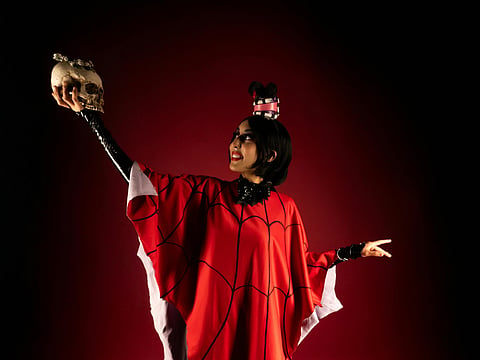
- LIFESTYLE
- FASHION
- FOOD
- ENTERTAINMENT
- EVENTS
- CULTURE
- VIDEOS
- WEB STORIES
- GALLERIES
- GADGETS
- CAR & BIKE
- SOCIETY
- TRAVEL
- NORTH EAST
- INDULGE CONNECT

Theatre has always been a reflection of humanity—its dreams, struggles, and evolution. From ancient rituals to modern experimental stages, the journey of theatre is a story of transformation, driven by the societies it serves.
In ancient Greece, theatre was more than entertainment; it was a communal experience tied to religion and myth. The plays of Aeschylus and Sophocles weren’t just stories—they were conversations about fate, morality, and the human spirit. The chorus, a group of performers who spoke as one, brought the audience into the heart of these reflections, making theatre a collective meditation on life’s mysteries.
As Rome rose to power, theatre changed. It became less about the gods and more about spectacle. Elaborate settings, slapstick humour, and sensational dramas took centre stage. This was theatre as mass entertainment—loud, bold, and unashamedly fun.
Then came the Middle Ages, when theatre returned to its sacred roots. In the bustling squares of Europe, morality plays and religious dramas taught lessons about right and wrong. Characters like Everyman weren’t just figures on a stage; they were representations of humanity itself, grappling with questions of virtue and sin.
The Renaissance blew the doors wide open. Suddenly, theatre wasn’t just about teaching or entertaining—it was about exploring the depths of human nature. Shakespeare and his contemporaries used the stage to ask big questions: What drives ambition? What does love feel like? What happens when we face betrayal? Theatres like the Globe weren’t just places to watch stories unfold—they were places to see yourself.
In the 19th century, realism took hold. Theatre began to strip away the grand gestures and elaborate plots, focusing instead on everyday people. Henrik Ibsen’s A Doll’s House and Anton Chekhov’s The Cherry Orchard gave audiences stories that felt uncomfortably close to their own lives. Theatre became a mirror, showing the world as it was, not as we wished it to be.
The 20th century shattered all the rules. Absurdist playwrights like Samuel Beckett asked whether life had meaning at all. Brecht’s epic theatre made audiences think, not just feel. Theatre became a place to question politics, identity, and existence itself.
Today, theatre is a rich blend of these movements. Whether on grand stages or in intimate black-box spaces, it continues to evolve, telling stories that connect us to our shared humanity.